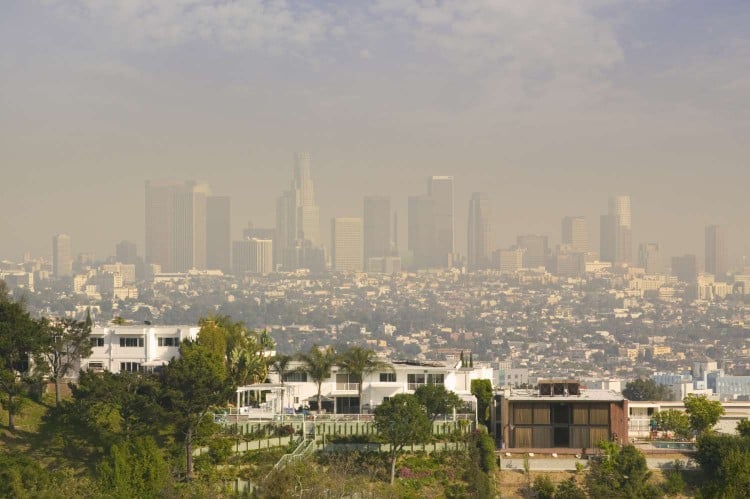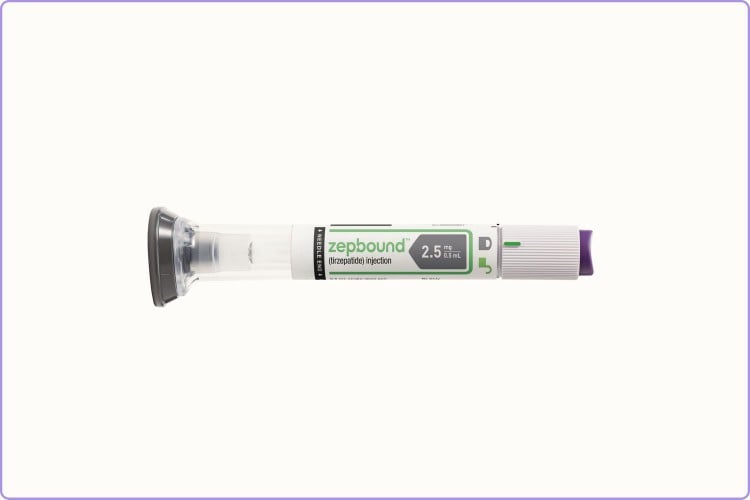Air Pollution May Increase Risk of Non-Lung Cancer in Older Adults
- New research found that continued exposure to certain air pollutants is linked to an increased risk of developing colorectal and prostate cancers.
- This connection was found even in regions where air pollution levels are below the national standards and WHO guidelines.
- Experts recommend people maintain awareness about the air quality index in the areas they frequent, taking safety protocols when quality reaches anything over 200 in severity.
Regular exposure to air pollution may increase a person's risk of developing colorectal and prostate cancers, a new study finds.
Air pollution is not a new concern. Approximately 36% of Americans live in places with failing grades for unhealthy levels of ozone or particle pollution. Poor air quality has been largely linked to respiratory health, as well as an increase in cancer risk.
The new research, published earlier this month in Environmental Epidemiology, found that repeated exposure to PM2.5 and NO2 air pollutants increased the risk of developing colorectal and prostate cancers.
Researchers also discovered that even low levels of air pollution exposure can make people more likely to develop these cancers, along with breast and endometrial cancers.
“The biggest finding is that air pollution can cause major types of cancers beyond just lung cancer," said Yaguang Wei, research fellow in the Department of Environmental Health at the Harvard T.H. Chan School of Public Health.
Wei noted that this connection was found even in regions where air pollution levels are below the national standards and World Health Organization (WHO) guidelines.
Researchers looked at data from 2000 to 2016 of national Medicare beneficiaries 65 years or older. Participants were not diagnosed with cancer for at least the first 10 years of the study.
They examined participants with breast, colorectal, endometrial, and prostate cancers, and analyzed cancer risk as it related to air pollutants.
Results demonstrated that chronic PM2.5 and NO2 exposures increased the risk of developing colorectal and prostate cancers; NO2 exposure was associated with an increased risk of breast cancer.

Getty Images / Jon Hicks
The Correlation Between Pollution and Cancer
While pollution is known to be a contributing factor to lung cancer, the new study confirms that it can negatively impact other parts of your health, too.
According to Thomas Dailey, MD, a pulmonary and critical care medicine with Kaiser Permanente in Northern California and Chair of the Bay Area Air Quality Management District, the inhalation of fine particle materials causes irritation—this irritation expands to other areas of health aside from lung cancer.
Studies also show that breast, liver, and pancreas cancer can be caused by air pollution and poor air quality.
“One reason is the ultrafine particulate materials get into the bloodstream and aren’t stopped just by the lungs—it goes through many major organs," Dailey said. "Aside from cancer, we also see increases in heart attacks and strokes in Emergency Departments on poor air quality days."
Risk of Fatal Heart Attack May Double During Heat Waves and Days With Poor Air Quality
Some Regions Have Higher Pollution Levels Than Others
According to the State of the Air report from the American Lung Association, four of the top five most polluted cities are in California: Bakersfield, Visalia, Fresno-Madera-Hanford, and Los Angeles-Long Beach. Fairbanks, Alaska rounds out the top five.
“It’s usually concentrated in urban areas, especially major cities, and in industrial areas where factories and power plants are located, and along the highways,” Wei said.
He explained that regions with surrounding mountains—like Central Valley in California—may also see lower air quality due to pollution being trapped in certain areas. Regions with more wildfires are also prone to more pollution.
Recently, the wildfires in Canada have made the general public more aware of air quality concerns and the importance of checking the air quality in your area.
“The recent exposure of smoke on the east coast from Canadian forest fires has created an awareness in the general population of the air quality index (AQI), which is reported daily on most weather apps or websites,” said Louis Potters, MD, the chair of radiation medicine at Lenox Hill.
Potters explained that the AQI is composed of several factors, like particulate matter and nitrogen dioxide (both of which were included in the new research).
“Awareness of the AQI helps to offer the opportunity to avoid outdoor exposure when the AQI exceeds dangerous levels," Potters said.
You can check the air quality of your region by visiting the Air Now website.
How to Protect Yourself From Air Pollution
There are numerous ways to stay healthy and safe amidst poor air quality. Daily recommends the following:
- Avoid being outdoors on poor air quality days.
- Make repairs to your home to make them airtight. For instance, if you can smell smoke on wildfire days, your doors and windows are not airtight.
- Avoid exercising on poor air quality days. If you must, exercise early in the morning.
- Have enough food on hand during extreme weather or poor air quality days. Find nonperishable foods like storable milk that don’t require refrigeration.
- For essential workers who need to be out such as firefighters, police, and city workers, please wear an N-95 mask. They provide better protection than both cloth and surgical masks and can protect you from particulate matter.
“While we all got used to wearing surgical masks with COVID, one needs to be aware that only the N95 mask is helpful in decreasing exposure to air pollutants," Potters said.
Additionally, he emphasized that special attention is required when the AQI exceeds 200, but some individuals at risk for respiratory or cardiac issues, a level of greater than 100 may require avoidance of outdoor activities such as exercise or prolonged time out of doors.
Paying attention to the AQI allows people to better avoid acute illness, and, based on the new study, cancer risk.
“Being aware of the air quality index serves as an indicator when to be cautious out of doors to lower one’s risk of respiratory and cardiac illness but also for lowering one’s risk of cancer,” Potters said.
Extreme Heat Can Be Deadly, Experts Urge These Tips for Avoiding Illness and Injury










